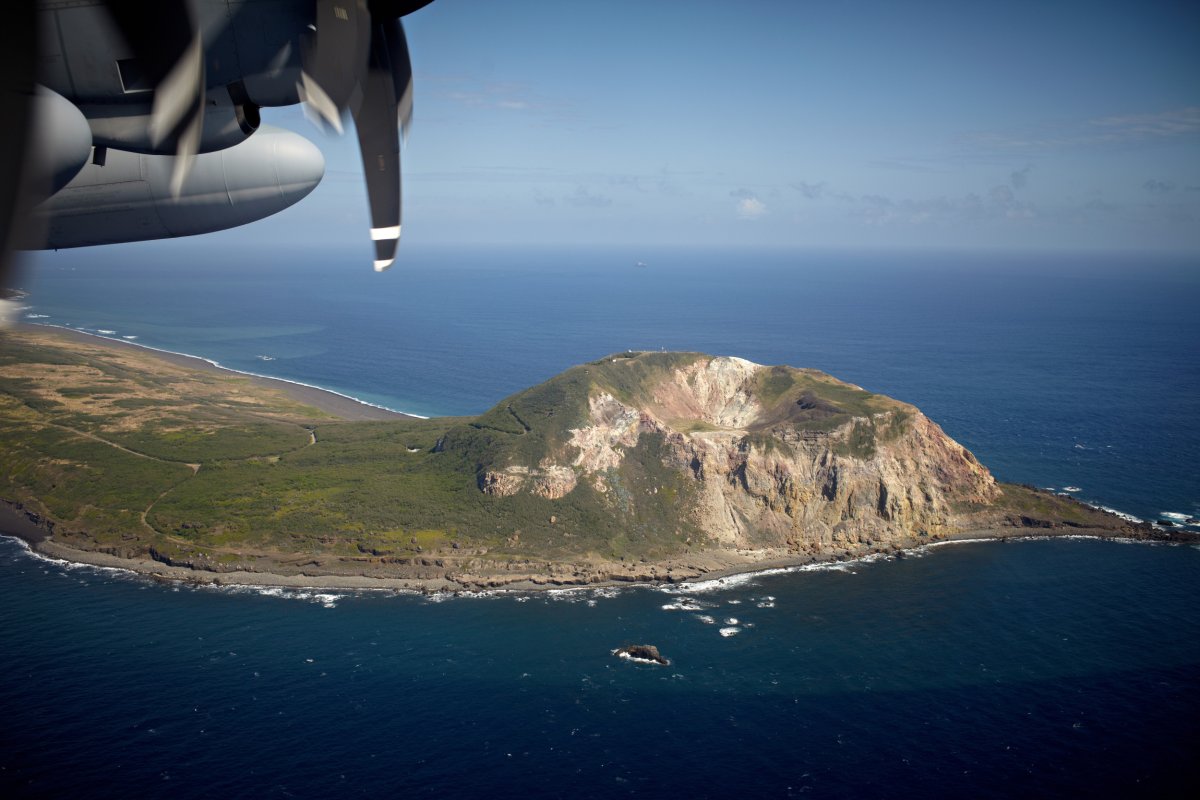A new island has formed following an explosive underwater volcano eruption in Japan.
The freshly formed isle lies off the coast of Iwo Jima, south of Tokyo. When underwater volcanoes, also known as seamounts, erupt, the build of lava occasionally breaks the surface of the water. This causes an island to form.
The eruption occurred on October 30, following an elevated period of unrest. Magma had been accumulating for quite some time, and finally breached the surface, creating a new island. Prior to this island being formed, Iwo Jima had emitted volcanic tremors every two minutes since the middle of October, according to the Japan Meteorological Agency (JMA).
Setsuya Nakada, a professor of volcanology at the University of Tokyo, told Newsweek that the eruption offshore of Iwo Jima, also known as Iwoto, started last year. It then resumed on October 21.
"The depth of sea bottom when the eruption started last year was as shallow as 50 meters [164 feet]," Nakada said. "About 10 days after the resumption of its phreatomagmatic eruption the accumulation of erupted materials—rock, pumice, sand—accumulated on the sea bottom and the top reached the sea surface. By continuation of such the phreatomagmatic eruption, the islet increased its size."
Japan's Maritime Self-Defence Force's air base had been keeping tabs on the situation, before they heard a loud eruption taking place. Ash and sand were also witnessed flying high when the eruption was underway.
The JMA had previously detected a rising island from the depths.

The new island is now part of the tropical Ogasawara Islands, consisting mainly of rock. The island could even become bigger, as volcanic activity continues.
"On November 3 when I flew over, the eruption style had changed, with reddish brown volcanic ash and volcanic bombs had exploded repeatedly from inside the crater," Nakada said. "Volcanic ash and bombs reached ejected masses as high as 100 meters above, and they collapsed and returned to the crater, then an ash cloud laterally moved from the crater even on the sea surface. This phenomenon indicates that the magma was able to reach the sea surface without any contact with sea water."
It is not known whether the island will become a permanent part of the landscape. But it is possible that continued lava flow in the area will help to preserve it, Nakada told the Japan Times.
"The areas that don't have lava could be scraped away. So if more and more lava comes out, and covers the area, I think that part will remain forever."
Japan is one of the most volcanic countries in the world. It lies where four tectonic plates meet, meaning it is a hotbed for volcanic and seismic activity.
New islands have formed in the Ogasawara islands before. A new island also formed in 2013, following an underwater volcanic eruption.
This island then merged with an existing island called Nishinoshima. This island was also formed following an underwater eruption. Officials will continue to monitor the ongoing volcanic activity in the coming days.
Do you have a tip on a science story that Newsweek should be covering? Do you have a question about volcanoes? Let us know via science@newsweek.com.
Uncommon Knowledge
Newsweek is committed to challenging conventional wisdom and finding connections in the search for common ground.
Newsweek is committed to challenging conventional wisdom and finding connections in the search for common ground.
About the writer
Robyn White is a Newsweek Nature Reporter based in London, UK. Her focus is reporting on wildlife, science and the ... Read more
To read how Newsweek uses AI as a newsroom tool, Click here.






